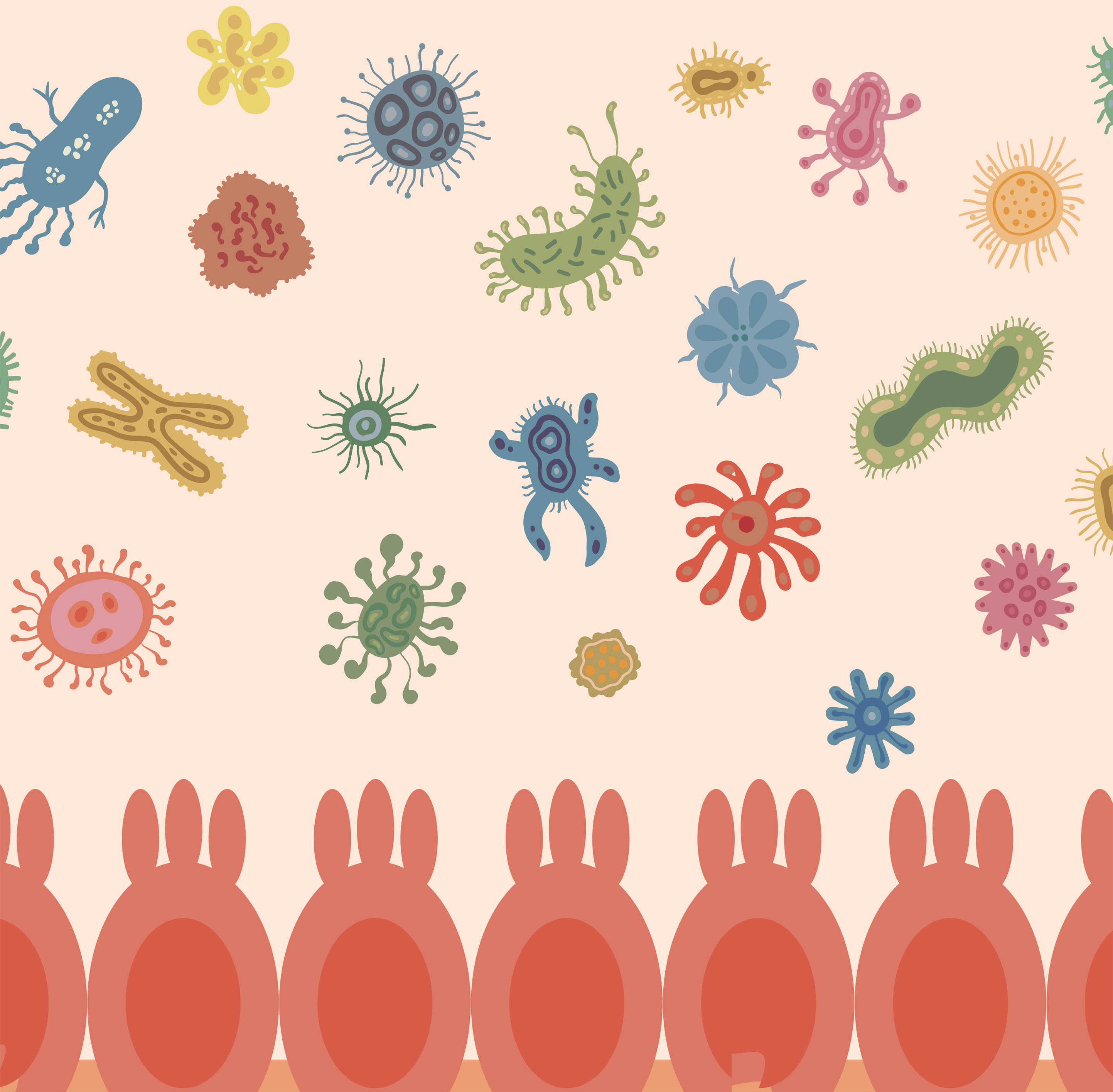At-A-Glance
- When long-Covid (aka long-haul Covid) was first reported, the most common symptoms were brain fog, chronic fatigue, intense muscle pain, shortness of breath, post-exertional malaise, and loss of taste and smell.
- Long-Covid can also cause serious cardiac and circulatory problems, but these are just coming to light. And yes, there is overlap between the symptoms described early and the cardiovascular symptoms being reported now. Spoiler alert: It’s the vagus, Baby … It’s the vagus.
- Post-Covid cardiovascular symptoms include: (1) coronary artery spasm; (2) heart attack; (3) postural hypotension (feeling faint when standing up) aka POTS; (4) heart palpitations and arrhythmias; (5) high blood pressure; (6) stroke; and (7) with minimal exertion, tachycardia (fast heart rate) with simultaneous physical exhaustion.
- If you have followed my blog, you may be asking yourself why would I write a long-Covid piece here? Because I have personally suffered most of the long-haul symptoms for more than three years. And, they have evolved; today, my most debilitating symptoms are cardiovascular.
- I am telling a story that hasn’t been told but needs to be; and I hope this narrative helps others and perhaps even stimulates some new research. That is why this reads like a case study.
My Story and Maybe Yours
I was excited to be going on vacation in Key West for a month, but on January 30, 2020, I got sick with what I then thought was the flu. (The word “Covid” had not yet been spoken in the media.) So, I spent February in Florida continuously and violently coughing, bringing up buckets of nasty phlegm, feverish, weak as a kitten, and otherwise very achy. Two weeks into this, the material that I was coughing up became obviously purulent (containing pus).
The last week of February, I made an appointment with a physician; and after listening to my lungs, she declared, “Wow! Impressive pneumonia in both lungs!” I then got two large intramuscular doses of powerful antibiotics and went home on oral antibiotics, too. The antibiotics helped, and I returned to North Carolina the last day of February. I was feeling like I might be on the mend.
My real home and office were in Manhattan, but I had a second house in NC near my family, and that’s where I went. Back in NC, I found out that I had had Covid-19. Meanwhile, I planned to stay in NC longer, because my staff and I decided to close the office for two weeks.
Then, at age 75 and the day before New York was to be closed down, I pulled the plug on my medical practice and apartment. I retired? A large moving van brought virtually everything that I owned from New York to storage units in NC. Sadly, I never got to say goodbye to my staff, my friends, my beautiful office, or to New York City. Indeed, I never wanted to leave New York, and I never wanted to retire; alas, mine was a “guillotine retirement.”
In late March, I was no longer coughing, but I was depressed by the loss of my medical practice, friends, etc. So, I purchased a puppy, a gorgeous German shepherd, who I thought would be my companion for life. I named him VINY, acronym for Voice Institute of New York.
Long-Covid
I was really into long walks with VINY, 3-5 miles a day. VINY grew quickly, and after a few months, he was a powerful dog. Meanwhile, while he was growing bigger and stronger, my endurance was waning. Due to fatigue and shortness of breath, dog walks got shorter and shorter, and clearly my health was changing for the worse.
Over the course of the next few months, my ability to walk declined to the point that I wasn’t able to walk VINY around the block for him to do his business. By late October, I was incapacitated … and had to give up VINY. Indeed, I was almost housebound and most of the time I was flat on my back. By then I knew that I had severe long-haul Covid.
I had most of the common long-Covid symptoms (except my taste and smell were okay). I had brain fog, severe fatigue, shortness of breath, chronic muscle and back pain, rapid muscular fatigue, and POTS, which stands for postural orthostatic tachycardia syndrome. This syndrome is characterized by dizziness and feeling faint on standing up, coupled with tachycardia (a rapid increase in heart rate).
With POTS, what happens physiologically is that too-much blood pools in your legs, and when you stand up, the leg circulation doesn’t get the message to send blood back up to where it’s needed more, like the heart and brain. Since the heart has less blood to pump with each stroke, the heart rate increases. In addition, you feel like you’re going to faint because not enough blood is getting to your brain.
Eating also became a problem for me because it worsened my POTS. If blood was going to digestive organs, there must be even less available for the heart and brain. I would have to lie down after just a minute or two of eating due to dizziness; and I would usually lie down on the floor or a sofa for a couple of minutes, and then resume eating … da capo.
So it went for months, but I pushed myself on my treadmill almost daily; still I could never do more than three minutes without holding on (and that is still the case). And I had severe back and leg pain, worse after Covid. (I broke my back in an auto accident at age 16 and I had five back surgeries as an adult; back pain has been my close companion throughout my life.) I spent many days, all day, flat on my back.
Did I see doctors? I saw my primary care physician, a neurologist, and a back/pain specialist. The latter said steroid injections or surgery were out of the question, but put me on low-dose naltrexone (July 2021), and it did help.
I also saw a lot of people who were not physicians for physical therapy, acupuncture, craniosacral work, yoga, and massage. None of it helped. But over time, I gradually got some strength back, and my POTS was better, too, as long as I didn’t get up quickly. Incidentally, I got a second bout of Covid in July 2022 without pneumonia, and this time I had no new long-term sequelae.
Coronary Artery Spasm? Heart Attack?
Everything (again) changed on March 4, 2023. On vacation in Florida, I awakened in the morning at about 9:00 with chest pain, and by 10:00 I recognized that it had to be cardiac pain, the kind you have with a heart attack.
My sister drove me to the hospital and I was admitted straight to the cardiac intensive care unit. My cardiac enzymes that measure heart attack severity were sky high, and I was quickly scheduled for cardiac catheterization, presumably to save my life.
Meanwhile, with the first sublingual dose of nitroglycerine (that opens up blood vessels), my chest pain vanished completely. And an hour or so later, I underwent a normal cardiac catheterization … no blockages, no plaques, nothing. I looked up at one point during the procedure and saw my coronary arteries as wide open and clean as could be.
Other than my blood pressure being high, and that was new — I had never had high blood pressure before — they found nothing and I was discharged a day and a half later with normal heart tests and a diagnosis of “transient coronary artery spasm.”
Comment: Coronary artery spasm is a rare occurrence, and I could only find one case associated with long-Covid in the medical literature. Meanwhile, in talking with colleagues all over, without postulating a mechanism, I heard that “no-heart-damage heart attacks” like mine were being seen in long-Covid cases. And so too was the sudden development of high blood pressure. As of this writing, I believe that both are/were related not so much to problems with the heart itself, but rather with the control system, the wiring, the vagus nerves. I have previously written a three-part blog about the vagus.
Profound Exertional Intolerance
Without a reasonable explanation, I was never the same after that March 4th event, ever since that “not heart attack.” Back at my vacation house, I just couldn’t get around. For example, I had to stop three times to rest on the fifty-yard journey to the swimming pool.
Now, as of this writing, I have been reevaluated by a NC cardiologist (including having a normal stress-echo), and he found nothing. So why do I feel like a cardiac cripple? In my case, with mild exertion, my heart rate increases and my strength leaves me. Just going to the mailbox, a mild uphill forty yards, my heart rate rapidly climbs by 40-50 bpm, and I experience shortness of breath, and severe muscle (especially my legs) fatigue. Half-way back, I am bent over, hands on knees, grunting, panting, and exhausted … unable to move without resting. Add to this some (new) imbalance on awakening in the morning and late at night.
What has changed my life the most is the disabling chain reaction of fast heart rate, fluctuating blood pressure, and physical collapse with minimal exertion. How can this be with a normal heart? And also where did that high blood pressure come from so suddenly?
Comment: Covid-19 invaded/invades brain tissue and especially the brainstem where the vagi (pl. vagus) exit. There is no reasonable alternative explanation for the syndrome that I have experienced except for vagal dysfunction. The vagi regulate heart rate, blood pressure, and open and close any and all blood vessels. Assuming vagal damage at or in the brainstem, then almost all of the cardiopulmonary complications of long-Covid, including arrhythmias and stroke, may have a common source. But before blaming everything on the vagus, I should inform you that there are a few other long-Covid cardiac complications that are inflammatory and/or autoimmune, such as myocarditis and pericarditis.
Treatment? Honestly, I don’t know if there is a medicine for sick vagi. But I know from my work with chronic cough patients that gabapentin (which I am on, 300 mg. four times a day) might help the vagal control center relearn normal-ish physiology. And I think the gabapentin helps my leg pain and boosts my energy.
And my experience — with what I believe is a vagal nucleus and nerve trunk problem — keep fighting. What that means is to push though the fatigue, pain, etc. For example, instead of lying down when you feel like you need to, fight it; remain in a sitting position or do light work like unloading the dishwasher — as though you were telling the leg blood-control system “get it right,” you can’t have all the blood. And when you seemingly can’t go further on the treadmill, hold on for life and go a little further each day.
Summary of the Problem
The primary purpose of this report was to inform you, the public who may have this, and to enlighten healthcare professionals and researchers who do not have a handle on most long-Covid symptoms at this point. By the way, I presented my history, data, and PubMed research to my cardiologists and all I heard was crickets, no response.
How bizarre what has happened to me! Think about it, the “pseudo-heart attack,” the appearance of “sudden hypertension” (high blood pressure), and I mean 200/100-ish; the “I am a cardiac cripple with a normal heart” syndrome … all three connected to Covid-19.
I have a normal heart. These vagally-mediated complications have ripened because it can take time for aberrant nerves heal together to produce a Frankenstein vagus. This is analogous to a soldier who’s lost his leg three years ago, but now is bitterly complaining of ipsilateral (same side) foot pain … bad news, the wrong nerves grew together.
The other more likely possibility is that the vagal nuclei were damaged by Covid at the brainstem level; and the cardiovascular complications reported here are can be seen in people with normal cardiovascular systems before Covid.
I predict that we are going to see more and more post-Covid cardiovascular complications as time passes, and like my case, they will be enigmatic. Unfortunately our healthcare system is ill-equipped to deal with a tsunami of patients with this complexity.
References
Characterizing long COVID in an international cohort: 7 months of symptoms and their impact
Long COVID syndrome-associated brain fog
In Tiny Doses, An Addiction Medication Moonlights As A Treatment For Chronic Pain
Morphological, cellular, and molecular basis of brain infection in COVID-19 patients
Persistent Brainstem Dysfunction in Long-COVID: A Hypothesis
Vagus Nerve Dysfunction in the Post-COVID-19 Condition
Neuroimmune disorders in COVID-19
Pathogenic mechanisms of post-acute sequelae of SARS-CoV-2 infection (PASC) – PMC










